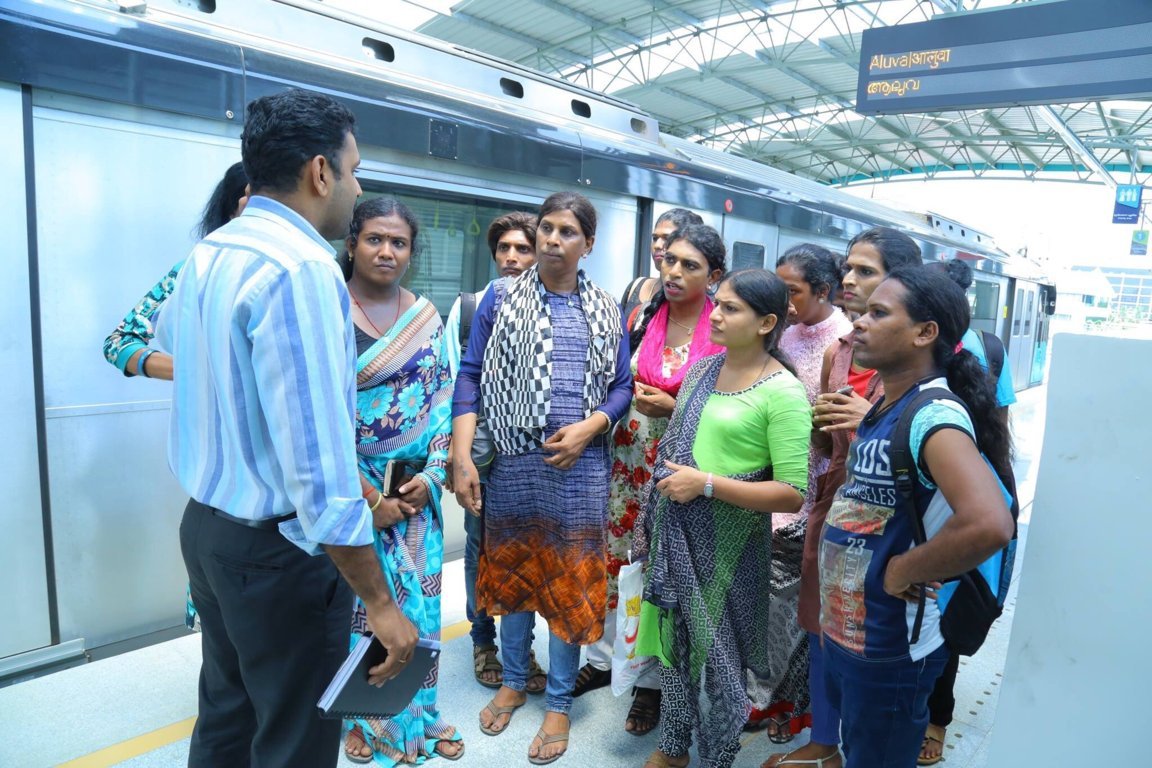
Transgender Community hopes for a brighter future in 2018
by Yash Saboo January 2 2018, 5:38 pm Estimated Reading Time: 3 mins, 33 secsThe transgender community is incredibly diverse. Some transgender people identify as male or female, and some identity as genderqueer, non-binary gender, or somewhere else on or outside of the spectrum of what we understand gender to be. Some of them take hormones and have surgery as part of their transition, and some don’t. In India, these people are commonly called hijras/ kinnars (eunuchs), shiv-shaktis, jogappas, Sakhi, jogtas, etc.

ScoopWhoop
The Supreme Court of India granted transgenders basic human rights back in 2014 and said, “In view of the constitutional guarantee, the transgender community is entitled to basic rights i.e. Right to personal liberty, dignity, Freedom of expression, Right to Education and Empowerment, Right against violence, discrimination and exploitation and Right to work. Moreover, every person must have the right to decide his/her gender expression and identity, including transsexuals, transgenders, hijras; and should have right to freely express their gender identity and be considered as a third sex." Well, ruling is clearly different than acceptance. Even though the Supreme Court of India accepted transgenders as a third gender, the society doesn’t.
The story of Shivvy, born as Shivani Bhatt, recently hit the headlines. An 18-year-old transgender, Shivvy was shifted to India from the U.S under false pretexts, once the parents came to know that he was a transgender. Shivvy’s passport was confiscated by the parents. However, Shivvy was able to approach Delhi High Court, and thus received help in obtaining back the passport to return home to the U.S. However, not all the transgender population in India is as lucky, as the parents, due to lack of information, remain unprepared for such an eventuality and thus go into denial. They feel that this can’t be happening to their children. There is shame associated with the issue. They worry about what people will say or if at all the society will accept their child.
While the visibility of transgender people is increasing in popular culture and daily life, they still face severe discrimination, stigma, and systemic inequality. Some of the issues facing the transgender community in India are:
These people are shunned by family and society alike. They still face considerable stigma based on over a century of being characterized as mentally ill, socially deviant and sexually predatory. While these flawed views are starting to fade in recent years for lesbians and gay men, transgender people are still often met with ridicule from a society that does not understand them. Because of this they can't even participate in social and cultural life.
Transgenders have very limited employment opportunities. They have restricted access to education, health services, and public spaces. The lack of access to bathrooms and public spaces access is illustrative of discrimination faced by transgenders in availing each facility and amenities. They face similar problems in prisons, hospitals, and schools.
Reports of harassment, violence, denial of services, and unfair treatment of transgender persons have always come to light. Sadly, 2017 has already seen at least 28 transgender people fatally shot or killed by other violent means across the world. Transgender people have few options for protecting themselves from violence or seeking justice. A study documented that in the past one year, the percentage of those MSM and Hijras who reported: forced sex is 46%; physical abuse is 44%; verbal abuse is 56%; blackmail for money is 31%, and a threat to life is 24%.
The other fields where this community feels neglected are the inheritance of property and adoption of a child. They are often pushed to the periphery as a social outcast and many may end up begging and dancing. This is, by all means, human trafficking. Sometimes running out of all options to feed themselves, they even engage themselves as sex workers for survival.
While advocates continue working to remedy these disparities, change cannot come too soon for transgender people. Visibility – especially positive images of transgender people in the media and society – continues to make a critical difference for them; but visibility is not enough and comes with real risks to their safety, especially for those of who are part of other marginalized communities. And what if tomorrow Supreme Court does give them all rights, will the society's mindset change?





-173X130.jpg)




-173X130.jpg)
-173X130.jpg)